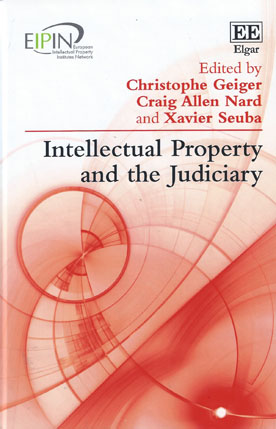We are now closed for the Christmas and New Year period, returning on Monday 5th January 2026. Orders placed during this time will be processed upon our return on 5th January.

Intellectual Property and the Judiciary explores the role of the judiciary in the elaboration and interpretation of intellectual property law, exploring how IP doctrine and policy are developed and the manner in which judges construct and apply norms in different court systems.
The authors engage in a comparative exploration of various national, European and international judiciaries and appraise the competing and complementary roles of governing bodies. The book offers an examination of both common law and civil law traditions in the context of judicial treatment of intellectual property.